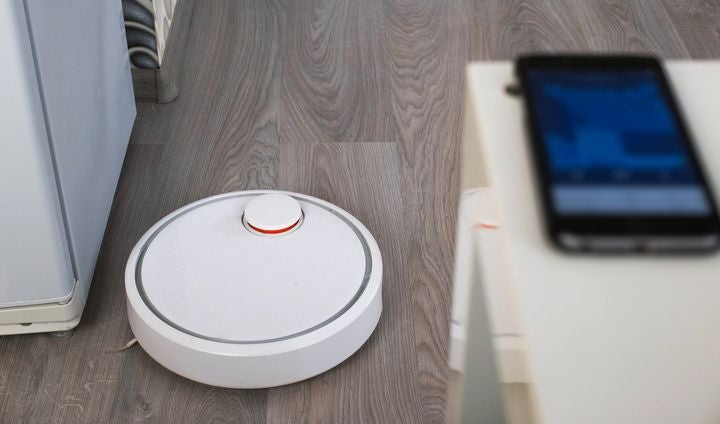Dave Ruedger
Chief Information Security OfficerDave Ruedger is the Chief Information Security Officer for RMS.
Log In
Access all customer product support, event response, and training in one place
LifeRisks PortalFind modeling tools based on best practice actuarial techniques and medical science
Miu PortalExplore analytics and risk insights for the alternative capital market
With the arrival and full realization of the Information Age, data really has become the new currency, and whether you are an individual or a business, we are all getting wise to the fact that data has significant intrinsic value. We are witnessing an exponential increase in the volume of data generated by everything being measured, monitored, observed and recorded all around us, and that pace does not show signs of slowing anytime soon. Every day we add to this data mountain, creating new data – whether we are aware of it or not. We give some data explicitly – but more often we now generate data implicitly, simply by our interactions with people, devices, and even locations.

The laws of supply and demand seem to be vastly different in the digital economy. There are no issues with the overabundance of data being generated, which has now outpaced the ability to ingest and process it all, let alone our capacity to understand its full meaning. But for those businesses on this new data frontier, endless data means endless opportunities. Artificial Intelligence (AI) will soon take up the slack and crunch the data and get meaning from it. And if you look at some of the world’s most valuable companies, it is plain to see that fortunes are being made, fueled by easy and ready access to data, gaining rewards for their ability to make patterns, linkages, and connections to extract value from raw data.
It is hard to stop producing data. Use an Internet-enabled device and we generate and receive data. Our Internet usage was focused on computers, then smartphones, but now extends to a range of Internet of Things (IoT) devices (with varying levels of data security) including robot vacuum cleaners, coffee makers, flood sensors, digital assistants, and even to door bells. Engaging with these objects improves our life experience, from getting our coffee on time, watching videos on the move to checking our heart rate and navigating around a city. All leave a data trail as we go. This instantaneous transfer of information has fueled an acceleration in services and data exchange to a level that is now becoming truly ubiquitous to anyone who has access. It is now second-nature to share our data with these devices, and if we don’t share data, the experience is curtailed.

A robot vacuum cleaner controlled by a smartphone.
So, as a much-quoted Chinese proverb states “May you live in interesting times” – and these are certainly interesting times. The challenge is, with all this data comes a new responsibility – how to get the right balance and best protect and control access to all that information, our information? Data put to good use enriches our lives, data used for nefarious means or not used as intended, has consequences for us all.
For many of us, access to our data currently has few limits. To prevent access means restricting the quality of interactions. For instance, without social media connecting data together, we miss out on a friend suggestion from someone we haven’t heard from in years. But access to this data comes at a price as we have seen with the data harvesting that occurred on Facebook because it was too readily accessible to outside organizations looking to exploit our information for personal, economic or even political gain.
It is easy to apportion blame solely on the shoulders of the companies who give us the services and content we crave, but we are surely now aware of how our data can be used and abused – we are not naïve. We too, must be mindful how our information is being distributed and must take an active role in constantly reviewing the data we publish and who has access, to protect our privacy. The tools to control our data are out there, but we do not take the time to understand them or use them. It is easy to unwittingly give free and unfettered access to our data. Ultimately, we must become good digital citizens and active custodians of our own data.
But it does not end there. Not only do we need to protect our own data, but we also need to be mindful of data we receive from others. When someone gives us a phone number, email address, or any contact information, we need to acknowledge that we, too, are now stewards of that information. Businesses deal with this all the time, and now with privacy regulations like the European Union GDPR in full effect, there are severe financial penalties for data malfeasance and gross negligence in data handling. Individuals, however, have largely been spared from this process, but they should not be. If you send an email with a file of data, have you got the permission to do it? What are the consequences of sending it? Taking a picture, recording audio or video, keeping door entry data – seemingly innocuous data can easily start to build a profile of an individual.
Perhaps in time there will be a movement towards enforcing civil penalties on those who violate the rights of others by mishandling their information, but for now we only have the trust between individuals to provide assurance that their data is safe.
The path to wisdom begins with awareness. As we become more technologically advanced as a civilization, we will continue to generate and amass data beyond the speed of thought, and this will only exacerbate the dilemma between the desire to access more information and the need to protect it at all cost. Now is the time to ask ourselves in everything we do whether this one thing, whether it be sending a message to someone, registering for a new service, visiting a retail store, taking a ride share or even ordering something online, could pose a threat to data privacy or if it is adequately protected. Just that one simple thought would be a start.
